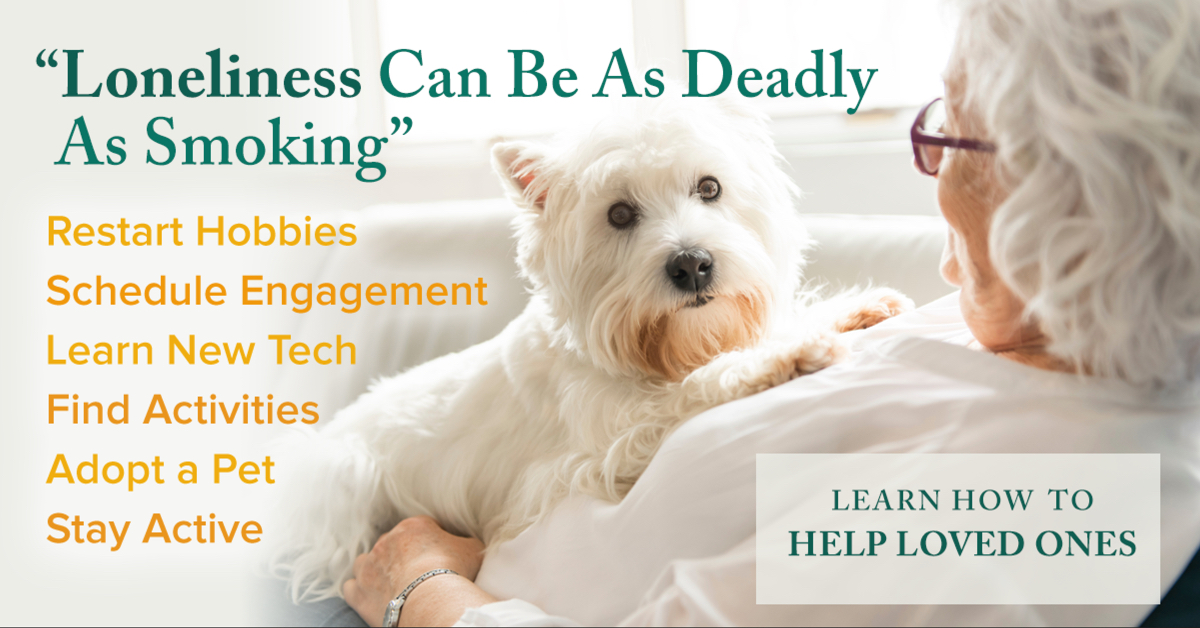Did you know that loneliness can pose a health risk as deadly as smoking? It’s a growing concern – one that recently was addressed by U.S. Surgeon General Dr. Vivek Murthy.
“In recent years, about one-in-two adults in America reported experiencing loneliness,” Murthy says in an advisory. “And that was before the COVID-19 pandemic cut off so many of us from friends, loved ones, and support systems.”
Older people are at an increased risk for loneliness and isolation increases for a variety of reasons – driving may no longer possible, mobility issues, chronic illnesses and hearing loss. According to the Centers for Disease Control and Prevention:
- Social isolation significantly increases a person’s risk of premature death from all causes – a risk that rivals smoking, obesity and physical inactivity.
- Social isolation was associated with about 50% increased risk of dementia.
- Poor social relationships were associated with 29% increased risk of heart disease and 32% increase risk of stroke.
- Loneliness was associated with higher rate of depression, anxiety and suicide.
- Loneliness among heart failure patients was associated with a nearly 4 times increased risk of death, 68% increased risk of hospitalization and 57% increased risk of emergency department visits.
“Socialization is important at any age, but it’s critical for older adults – especially for those who live alone,” said Sierra Goetz, co-founder and operations manager for Trail Ridge Home Care’s partner, the HomeCare Advocacy Network (HCAN). “It’s important for friends, family members, neighbors and others to know that they can really make a positive difference in their aging loved ones’ lives – boosting both the physical and mental health.”
To help your loved ones keep feelings of loneliness and isolation at bay, experts suggest:
- Finding an activity they enjoy or helping them restart an old hobby.
- Encouraging them to schedule time every day to touch base with family, friends and neighbors – in person or by email, social media, phone calls and text.
- Helping them learn new technologies, such as video chats and online games, to help keep them connected and engaged.
- Adopting a pet, if they’re able to care for one. They’re a great source of comfort and may also lower stress and blood pressure.
- Encouraging them to stay physically active.
- Checking out resources and programs that are offered through local social service agencies, churches and senior centers.
“At Trail Ridge Home Care, we understand that distance, work and family obligations might limit the amount of time friends and family members can spend with their aging loved ones – that’s why we provide companionship services,” Goetz said. “Whether it’s watching old movies, looking at photo albums, playing board games or going for walks, our professional caregivers love spending quality time with our clients. It’s great for the seniors’ overall well-being, and it gives their families much needed peace of mind.”
For more information about our companionship service, visit TrailRidgeHomeCare.com
